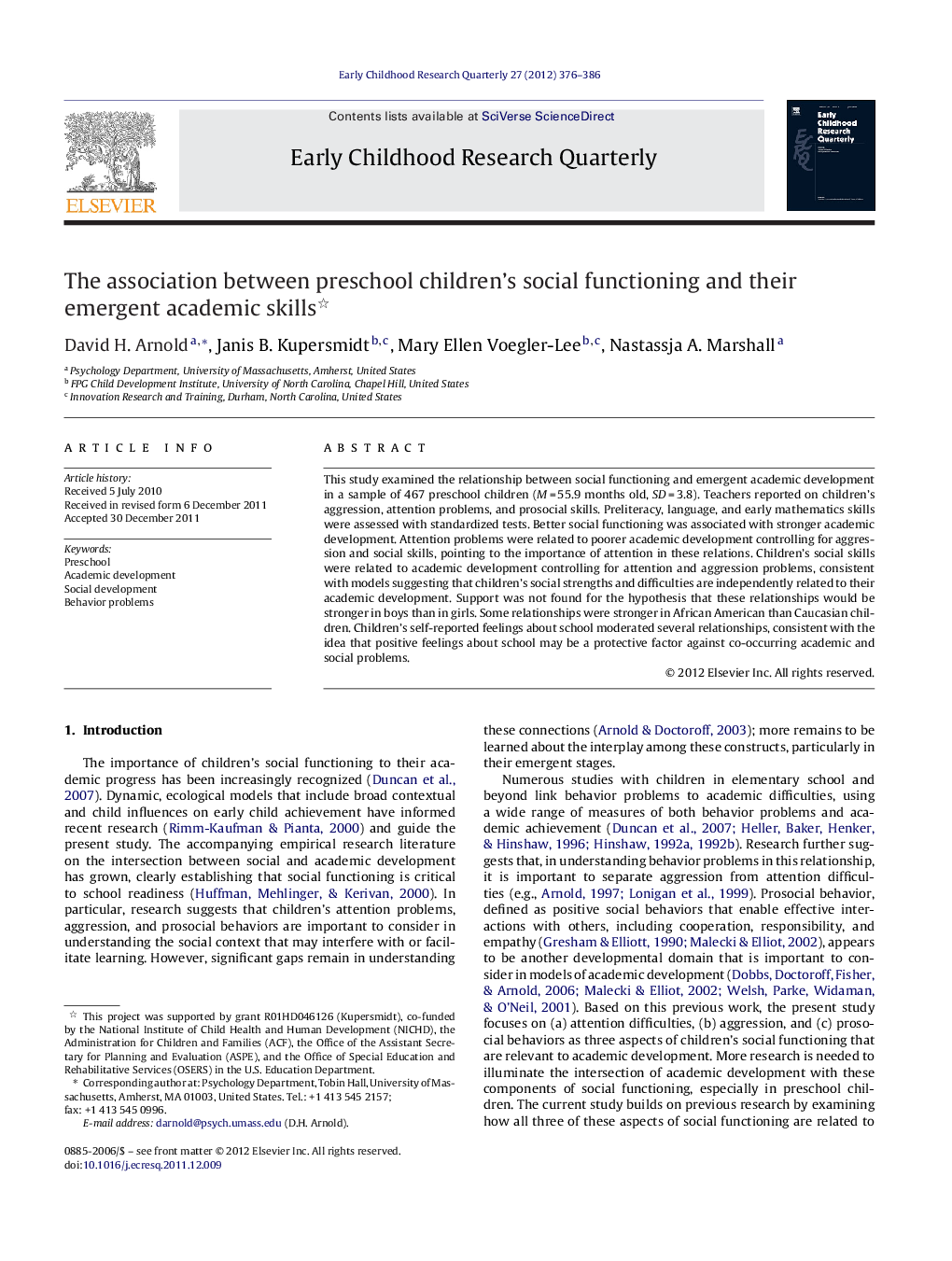| Article ID | Journal | Published Year | Pages | File Type |
|---|---|---|---|---|
| 353961 | Early Childhood Research Quarterly | 2012 | 11 Pages |
This study examined the relationship between social functioning and emergent academic development in a sample of 467 preschool children (M = 55.9 months old, SD = 3.8). Teachers reported on children's aggression, attention problems, and prosocial skills. Preliteracy, language, and early mathematics skills were assessed with standardized tests. Better social functioning was associated with stronger academic development. Attention problems were related to poorer academic development controlling for aggression and social skills, pointing to the importance of attention in these relations. Children's social skills were related to academic development controlling for attention and aggression problems, consistent with models suggesting that children's social strengths and difficulties are independently related to their academic development. Support was not found for the hypothesis that these relationships would be stronger in boys than in girls. Some relationships were stronger in African American than Caucasian children. Children's self-reported feelings about school moderated several relationships, consistent with the idea that positive feelings about school may be a protective factor against co-occurring academic and social problems.
► Examined emergent academic development and social functioning in preschoolers. ► Attention problems predicted poorer academic development. ► Social skills predicted stronger academic development. ► Some relationships were stronger in African American than Caucasian children. ► Positive feelings about school moderated relationships and may be a protective factor.
